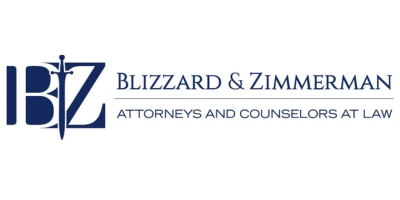There are grounds that you can assert in 11.07 Writ of Habeas Corpus to seek freedom from prison, even if what you did that resulted in your incarceration was a plea bargain, trial, or an open plea.
What you should do is to file an 11.07 for the right constitutional type ground.
For example, the Bill of Rights is there to protect the citizens of the United States from the overreach of the government.
Things like due process, ineffective assistance of counsel, and the right to a jury trial is embodied in the constitutional Bill of Rights.
However, some of the most commonly asserted things for which you can argue that you are illegally held in violation of the Constitution are ineffective assistance of counsel, prosecutorial misconduct, due process violations, and involuntary police.
Out of those, the most common is ineffective assistance of counsel.
That’s because it embodies a lot of claims including claims that:
- Your case is being overturned on appeal
- The trial judge’s error in overruling an objection is caused by your lawyer’s poor presentation.
So, for example, you can bring ineffective assistance of counsel in a case where you were in a traffic stop, detained by law enforcement or you were subjected to a warrant, search, and seizure of you or possession, which the officers didn’t have probable cause to do.
The warrant was issued incorrectly or didn’t have sufficiently reliable information to search for the things that were searched for.
Your trial counsel could have missed all these things, and not filed a pretrial motion to suppress, hindering you from arguing the illegality of the search and seizure done on you.
Under the ineffective assistance of counsel claim, you can go ahead and argue that your lawyer was ineffective for failing to recognize and file a motion saying that your search or seizure was illegal.
In these situations, ineffective assistance of counsel can be a powerful tool to seek freedom from incarceration.
Another instance is with lawyers.
Undoubtedly, lawyers do an excellent job, for the most part. But, a lot of times, trial lawyers are always very busy and overworked. They don’t usually see the full picture of a case, which leaves them with a scrambling mentality.
There was a case of a client charged with possession of drugs to be delivered in a drug-free zone.
The judge, prosecutor, and defense attorney all believed that the offense was a first-degree felony due to the drug-free zone enhancement.
However, that was not the case.
The trial counsel did not recognize that it was a second-degree felony with a minimum that was enhanced to seven years instead of two years, and not a first-degree felony.
So, in that situation, the lawyers, the judge, the prosecutor, all agreed to let this person plead guilty to what was a first-degree felony in their minds, advised him of the range of the punishment of a first-degree felony, put him on probation for a first-degree felony, only to later realize that, it’s actually a second-degree felony.
However, there’s a doctrine called the void judgment doctrine.
It allowed us to free our client because he had pleaded guilty to an offense that he was never charged with.
He pleaded guilty to a first-degree felony offense, which was voidable, and he was able to get out of prison after he had been revoked on his probation.
That’s one example that shows how ineffective assistance of counsel can be a very powerful claim.
There’re so many more examples of how this can work for your particular case.
So be sure to take a very detailed look at your situation to see if ineffective assistance of counsel may be a good ground in your case.
About The Attorney
Jacob Blizzard is board certified in both criminal law and criminal appellate law.
He regularly practices in the areas of state and federal criminal defense, criminal appeals, post conviction writs of habeas corpus.
In Texas, there are more than 100,000 attorneys licensed to practice, but only 7,450 are board certified.
In the entire State of Texas, as of the 2019 certification year, there were only 87 attorneys board certified in both criminal law and criminal appellate law, making Mr. Blizzard one of 0.087% of attorneys in Texas to hold both of those certifications.


